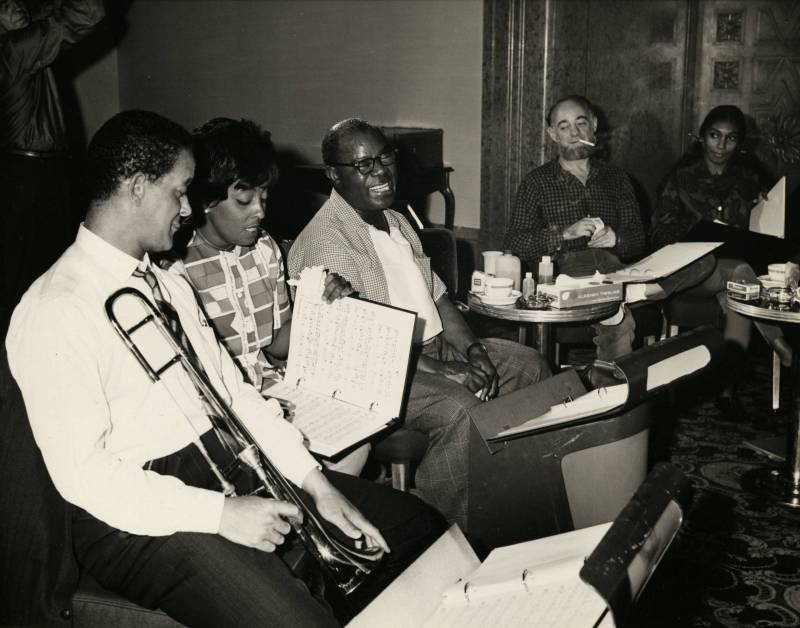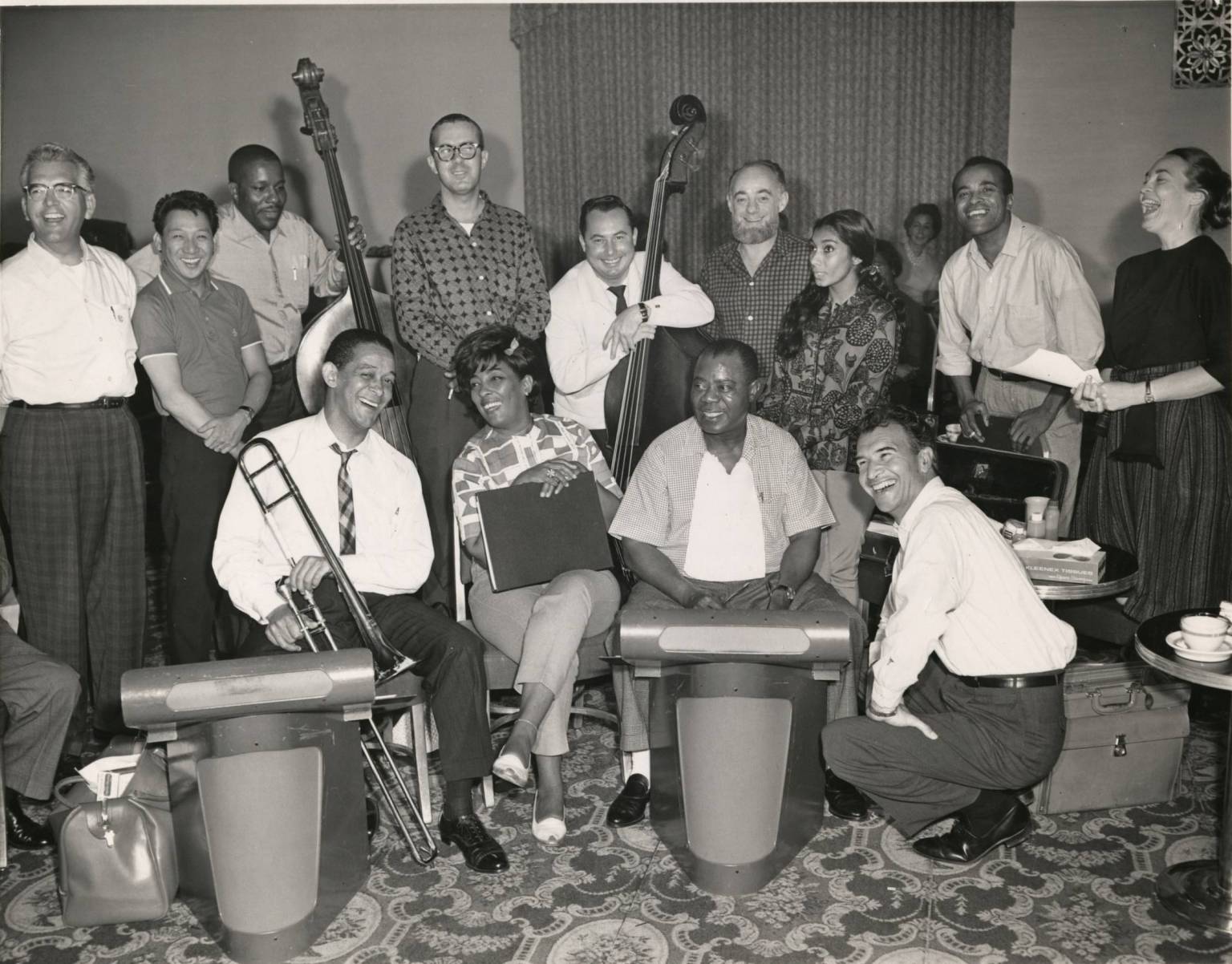The musical gets its name from the “cultural ambassador” title bestowed on Brubeck, Armstrong and other jazz musicians the U.S. State Department began sending abroad in the 1950s to share American music and culture.
Many of the Black musicians on the tour were treated as heroes abroad. But when returning home to segregation in the U.S., they were often forced to enter the venues they played through the service door. “The Real Ambassadors” questions this hypocrisy.
The Brubecks’ musical was a chance for Louis Armstrong to speak out about his deep feelings about racism and segregation in this country — feelings he rarely expressed publicly.
“The Real Ambassadors” never made it to Broadway as intended, and there’s no recording of its one performance at the Monterey Jazz Festival. But Columbia Records did record the bulk of the score, with lyrics that, in the words of arts critic Andrew Gilbert, “confronted Jim Crow segregation and racial prejudice with radical theology and a strikingly melodic score.”
Find the play button at the top of this page to listen to this audio journey, rich with original music, rare archival recorded letters back and forth between the Brubecks and Louis Armstrong about the project, and rehearsal recordings and interviews with Dave and Iola Brubeck. The documentary duo The Kitchen Sisters, in collaboration with Brandi Howell and the Echo Chamber podcast, brought us this project. Other voices include: the Brubecks’ sons, Chris Brubeck and Dan Brubeck; Keith Hatschek, author of the newly released book “The Real Ambassadors”; Ricky Riccardi, director of research collections for the Louis Armstrong House Museum; and singer/actress Yolande Bavan, the last surviving performer involved in the project.


